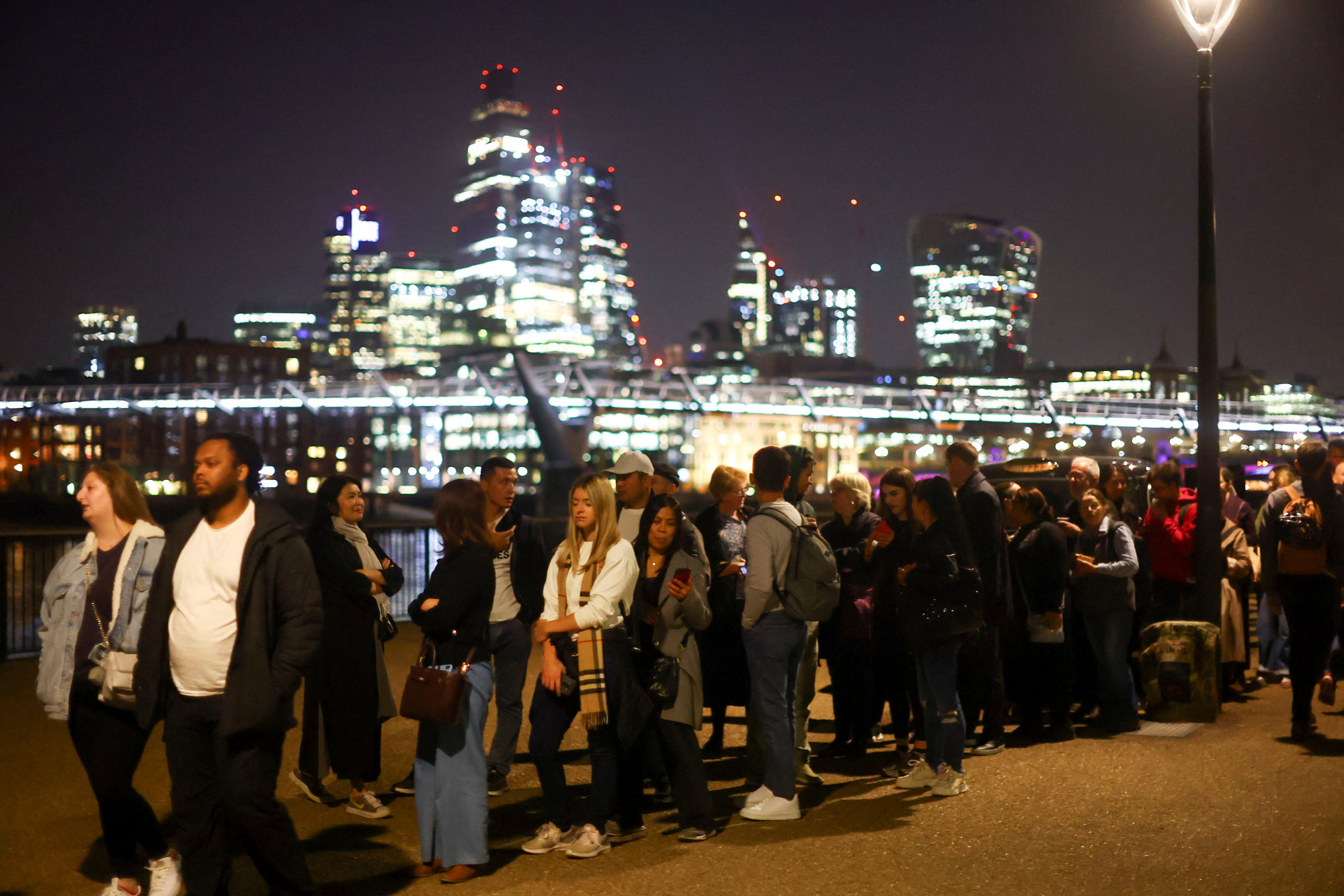
Mourning the queen may be a protest for many
- By paying tribute to a British monarch, the mourners in Hong Kong are thumbing their noses at Beijing. And police cannot do anything about it
By now, you have probably seen pictures of Hong Kong residents queuing for hours to pay their respects to Queen Elizabeth outside the British consulate in Admiralty. Or perhaps you were one of the mourners.
One video clip of a young woman who cried and wailed herself to exhaustion has gone viral. It was quite unbelievable. I wonder if she would feel so emotional if her own parents or grandparents died.
Fortunately, it’s not known that any recently emigrated BN (O)ers have mourned so violently outside Buckingham Palace, otherwise it would have been really embarrassing among the more reserved Britons.
As reported in the foreign press, it’s probably true that a good deal of the public display of grief is actually a protest. By paying tribute to a British monarch, the mourners are thumbing their noses at Beijing. And police can’t do anything about it.

But while I don’t share their grief, I can understand it. An article in the current issue of Nature, the science journal, explains how people can identify with someone they have never met such as a celebrity, and grieve over their passing.
“It makes sense that people will mourn the loss of public figures in whom they had somehow invested their own identities – by adopting the same perceived values, or because they admire a stance that the person took,” it said. “This is the loss of someone that has played a part in their own values and concerns. So it feels like not … just a loss of the person, but in a certain way, a small loss of an aspect of oneself.”
I suspect, though, that whatever values our Hongkongers hold dear, they are very different from – perhaps even diametrically opposed to – those that defined a lifetime of service and duty for the late queen.
Chinese delegation barred from visiting queen’s coffin: report
But the Brits created modern prosperous Hong Kong, and the queen was their symbol, many say. Of that, I am reminded of a heated exchange between an Amnesty International director and a mainland Chinese official.
Over its latest human rights report, the official protested that the Communist Party state lifted hundreds of millions of people out of poverty. To which the Amnesty director angrily responded that, “the Chinese people lifted themselves out of poverty and achieved economic success”.
Well, if you buy that argument, I believe the same applies to Hong Kong and its people during British colonisation, but on a much tinier scale.

